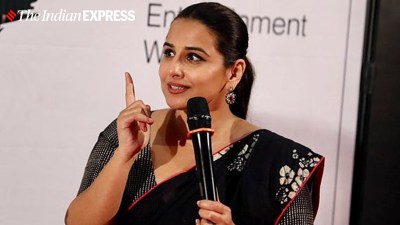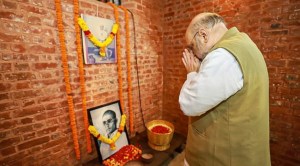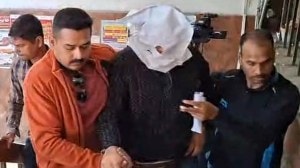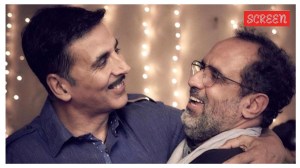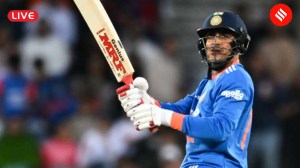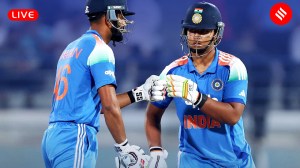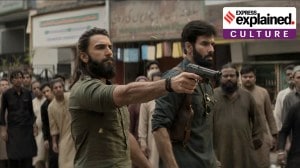All acquitted in 2002 Naroda Gam massacre: Brief history of the case
In March 2017, Maya Kodnani had sought the examination of 14 more witnesses in her defence, including Union Home Minister Amit Shah, who was then the national president of the BJP. Shah appeared before the designated court on September 18, 2017.
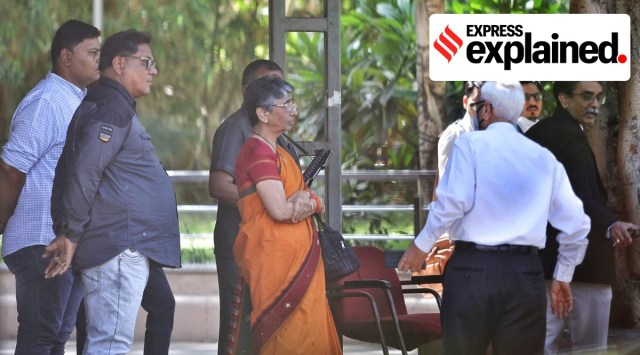 The accused in the case, now acquitted, included Maya Kodnani (in photo), a former minister in the government of then Chief Minister Narendra Modi, former Bajrang Dal leader Babu Bajrangi, Vishwa Hindu Parishad (VHP) leader Jaideep Patel, and V S Gohil, then police inspector at the Naroda police station. (Express Photo by Nirmal Harindran)
The accused in the case, now acquitted, included Maya Kodnani (in photo), a former minister in the government of then Chief Minister Narendra Modi, former Bajrang Dal leader Babu Bajrangi, Vishwa Hindu Parishad (VHP) leader Jaideep Patel, and V S Gohil, then police inspector at the Naroda police station. (Express Photo by Nirmal Harindran) A special court in Ahmedabad Thursday acquitted all 69 accused, including former BJP MLA Maya Kodnani, ex-Bajrang Dal leader Babu Bajrangi and Vishwa Hindu Parishad leader Jaydeep Patel, in the 2002 Naroda Gam massacre case where 11 members of a minority community were killed during communal riots.
What is the 2002 Naroda Gam massacre case?
The Naroda Gam case was among the nine major riots in Gujarat following the burning of the Sabarmati Express in Godhra on February 27, 2002, in which a speedy day-to-day trial was ordered. The trials were committed to designated courts, and monitored by the Supreme Court — yet the Naroda Gam case has taken 13 years to reach a verdict since the trial began and 21 years since the incident.
The trial was conducted by at least six judges over the years, and several past orders by them have recorded the delays by the prosecution, as well as the dilatory tactics employed by the defence.
The accused in the case include Kodnani, a former minister in the government of then Chief Minister Narendra Modi, former Bajrang Dal leader Babu Bajrangi, Vishwa Hindu Parishad (VHP) leader Jaideep Patel, and V S Gohil, then police inspector at the Naroda police station.
In 2012, Kodnani and Bajrangi were convicted in the Naroda Patiya case of February 28, 2002, the worst massacre of the Gujarat riots. Kodnani was sentenced to 28 years in jail, but she was acquitted by the Gujarat High Court in 2018 by granting her the benefit of doubt and observing that the trial court had first assumed Kodnani’s guilt, concluded that she was the kingpin and had then sought to find reasons to support such assumptions.
Of the 86 accused in the Naroda Gam case, 18 were abated during the course of the trial and one was discharged, leaving 67 accused, all of whom are currently out on bail. Nearly 182 prosecution witnesses were examined in the case. Special Judge Shubhada Krishnakant Baxi concluded the proceedings on April 5.
The accused face charges of murder, attempt to murder, criminal conspiracy, unlawful assembly, rioting, dacoity, promoting communal disharmony, mischief by fire, causing disappearance of evidence, abetment, deliberate acts intended to outrage religious feelings, and voluntarily causing hurt under the Indian Penal Code (IPC), and other charges including those under provisions of the Arms Act.
The Nanavati findings
On February 28, 2002, 11 Muslims were burnt to death after mobs set their houses on fire in a locality known as Muslim Maholla, Kumbhar Vas, in the Naroda Gam area of Ahmedabad. An FIR was registered at the Naroda police station.
The report of the Justice Nanavati Commission that investigated the Gujarat riots, noted the statements of witnesses that “there was no police help received by the Muslims and they were simply at the mercy of the miscreants”, and that police help arrived only in the evening. However, several police officials deposed before the Commission that they were not able to reach Naroda Gam because they were managing the more serious situation at Naroda Patiya, which was unfolding at the same time.
The Commission observed that “police force at the place was inadequate” and that the police “were not even properly equipped”. It concluded that “it cannot be said that they deliberately allowed the incident to happen.”
With regard to the involvement of political persons in the massacre, the Commission said, “…Not only the residents of the locality but even the police present at the place have said that the leaders of VHP, Bajrang Dal, and BJP had actively participated in these incidents and at their instigation, the riots in this area occurred.”
However, the Commission added, “since the issue with regard to the culpability of the leaders named above is under scrutiny of the judicial forums it is not proper for this Commission to express any opinion thereon and the Commission, as it is a fact finding Commission…”
Amit Shah as witness
In March 2017, Kodnani had sought the examination of 14 more witnesses in her defence, which included Union Home Minister Amit Shah, who was then the national president of the BJP. Shah, who appeared before the designated court on September 18, 2017, said that on February 28, 2002, the day of the incident, he had seen Kodnani in the Gujarat Assembly around 8.30 am, and at the Sola Civil Hospital around 11-11.15 am.
Shah deposed after he was summoned by the court on an application moved by Kodnani to prove her alibi that she was not present at Naroda Gam at the time the offence was committed — contrary to the claim of the Special Investigation Team (SIT), the prosecution agency in this case.
The Naroda Gam trial
Ten sessions cases were registered for trial — nine in 2009 and one in 2010, with a total 86 accused. In September 2009, the nine cases were ordered to be tried together and, in July 2010, then additional sessions judge S H Vora accepted the request of the public prosecutor to combine the tenth trial too. By then, 95 prosecution witnesses had been examined in the earlier nine cases, and merging all the 10 trials meant the court was required to commence the trial afresh.
The special public prosecutors too changed twice mid-trial, once with Nigam Shukla resigning, following which Ajay Choksi was appointed, and thereafter upon Choksi’s resignation, SC Shah was appointed in 2012.
In 2013, three accused — Kodnani, Bajrangi, and one Kishan Korani — asked then designated judge Jyotsna Yagnik to recuse herself from the Naroda Gam case because she had convicted them in the Naroda Patiya case. The court had rejected their application.
Also in 2013, the defence had moved an application seeking that 80 prosecution witnesses be arraigned as accused, and had accused the SIT of carrying out a one-sided investigation. At the time, 181 witnesses had been examined, and the court had noted that the trial is at the “fag end”. The SIT too had submitted that the defence’s request “is nothing but delaying the trial further”. The court had rejected this application.
In 2015, the court of then designated judge Pranav Deshmukh Desai had rejected a request by the defence to further cross-examine SIT investigator Pravinsinh Laxmansinh Mall, even after Mall had already “suffered extensive and lengthy cross examination, the period having been extended for more than 20 months”.
In 2016, the defence had sought that former IPS Rahul Sharma be arraigned as an accused in the case. The application was withdrawn, and Sharma deposed as a witness. At the time of his deposition, the defence objected to Sharma’s alleged conduct of “smiling” and “scoffing” during the proceedings. The court had dismissed the objections saying such incidents were a “common phenomenon”.
Sharma was among the key witnesses in the Gujarat riots cases, and had provided critical evidence to the Nanavati Commission. Following run-ins with the government, he quit the IPS, and is now a lawyer practising in the Gujarat High Court.
At one point in May 2017, the defence had also sought that special prosecutors appointed in the case — Gaurang Vyas and VJ Patel — be also examined as witnesses. The court, while deprecating the defence’s move, had noted that such a request is “yet another attempt by the accused to prolong the proceedings” and such requests “tantamount to nothing but a gross abuse of process of law”.
In March 2020, the then designated judge for the trial was transferred when the case was nearing the end, with final arguments underway on behalf of some of the accused. Judge Shubhada Baxi had then taken charge, who pronounced the verdict on Thursday.
- 01
- 02
- 03
- 04
- 05


